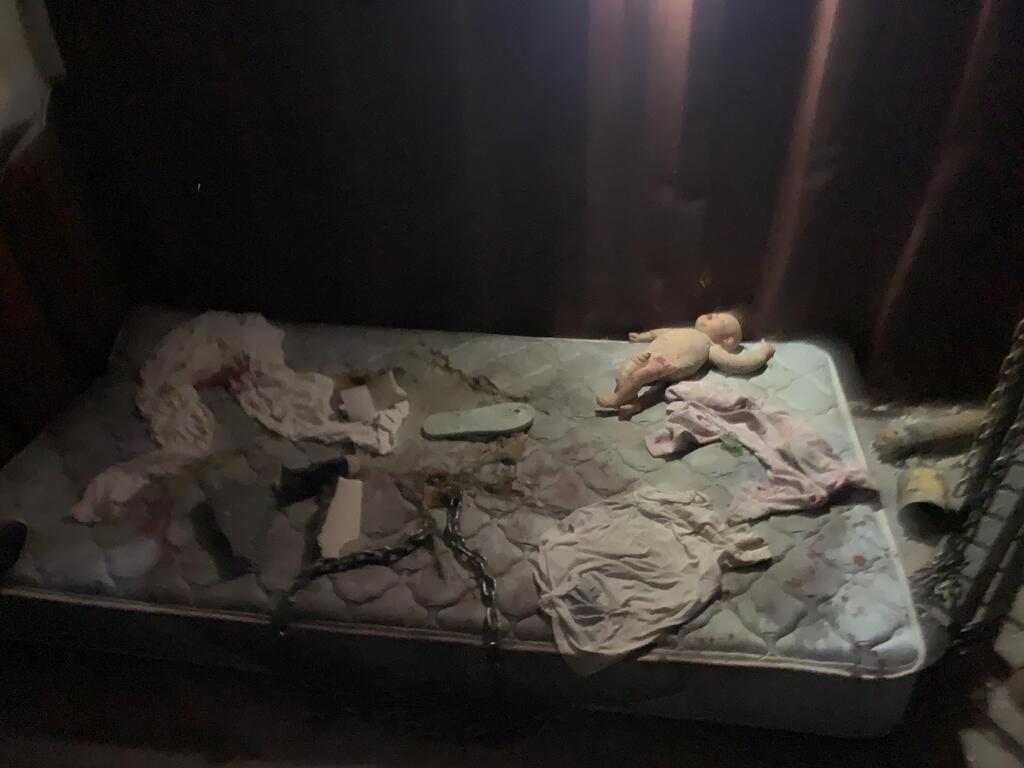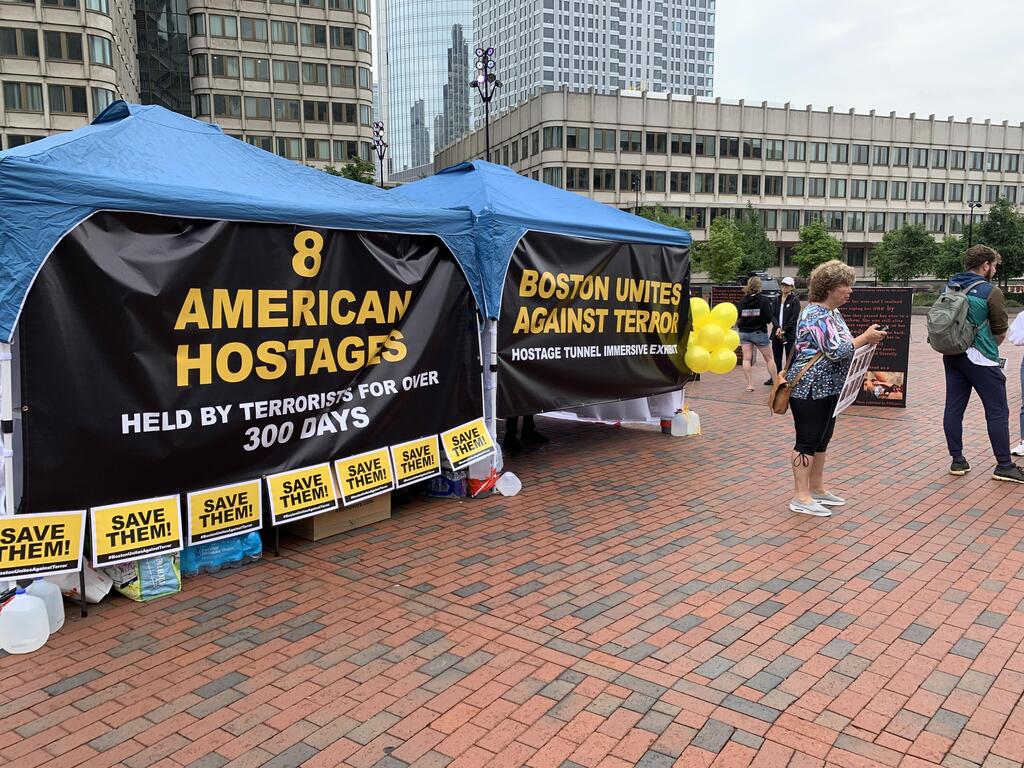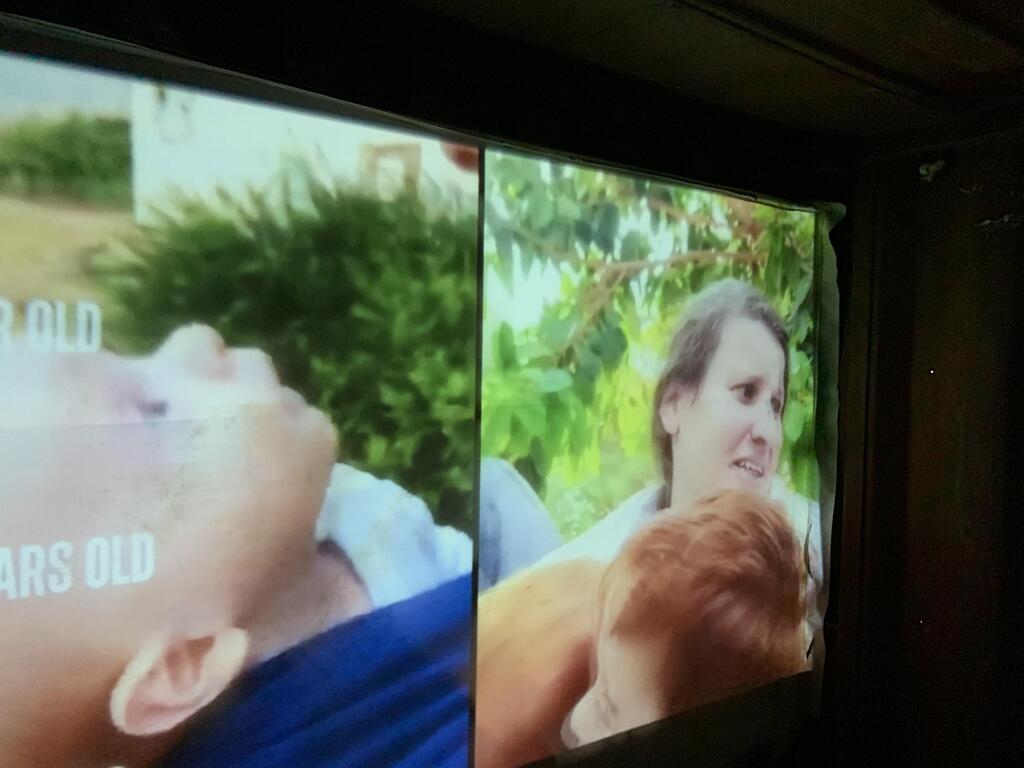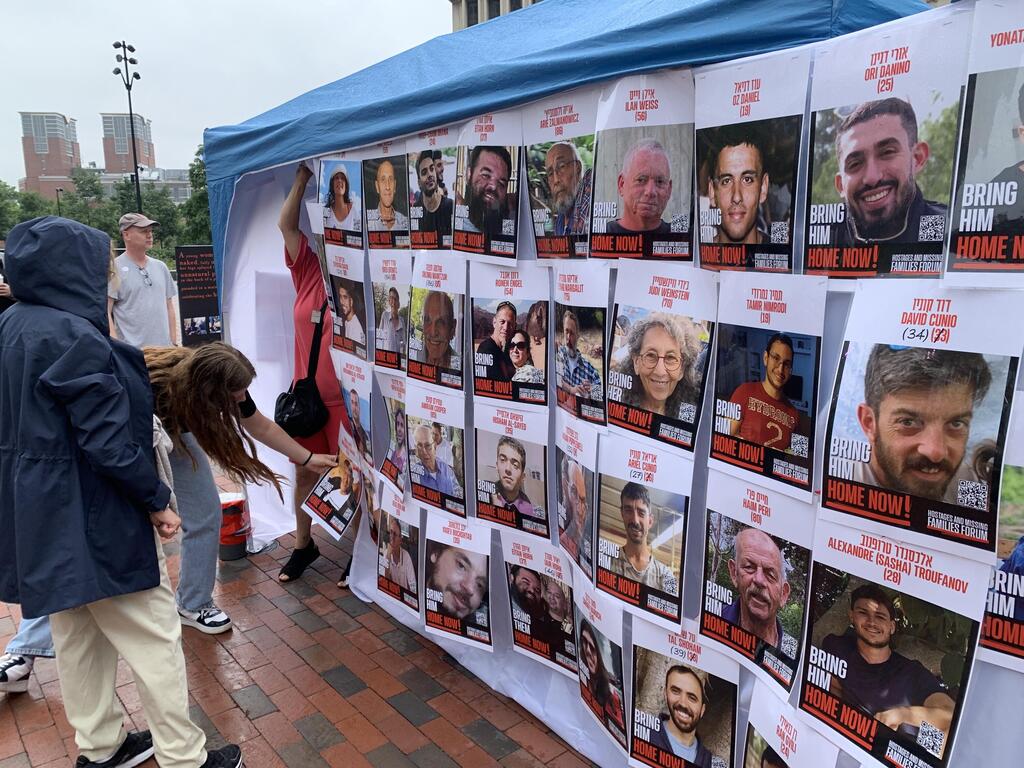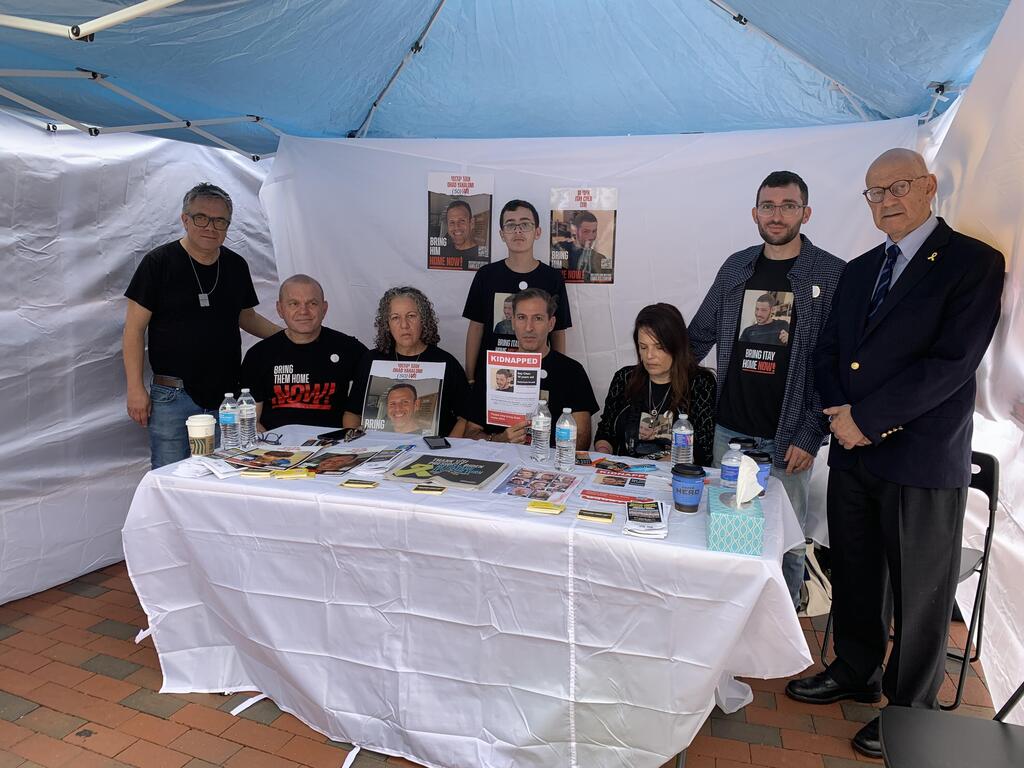Getting your Trinity Audio player ready...
Under the dripping skies of Boston in August, yellow balloons fluttered in the wind, some bursting as they collided with branches and lampposts. Volunteers, undeterred by the weather, chased after them, tying them securely to chairs and railings. "We won’t let go of any of them, just like we won’t let go of anyone," one volunteer remarked, her voice resolute.
This determination set the tone for an extraordinary exhibition that had taken over Boston’s City Hall Plaza - a city known for its student activism and a bastion of American democracy.
The exhibition in Boston
(Daniel Edelson)
Boston, with its prestigious universities like Harvard and MIT, has recently become, arguably, a hotbed for anti-Israel sentiment. Yet, amidst this charged atmosphere, the Jewish and Israeli communities, along with families of hostages, saw the exhibition as a critical effort to raise awareness. This was no ordinary exhibit; it was a vivid recreation of the tunnels in Gaza, where Israeli hostages are believed to be held by Hamas - and right across from the Mayor’s office.
Efrat (Effi) Avsker-Yahalomi, the sister of Ohad Yahalomi, who was taken captive by Hamas from Kibbutz Nir Oz on October 7, stood outside the entrance, debating whether to enter. She consulted with her husband, Mark, seeking reassurance. "Is it okay for me to go in, emotionally?" she asked, her voice trembling. Ruby Chen, who like Yahalomi had come especially to attend this exhibition, gently encouraged her. "You’ll be fine," he said. The father of the deceased U.S.-Israeli hostage Itay Chen, whose body is still held by Hamas in Gaza, has already been inside. Slowly, Avsker-Yahalomi joined the small, somber queue of people waiting to experience the replica tunnel.
Despite its modest size, the exhibit was both harrowing and revealing. Inside, the cramped space simulated the claustrophobic conditions of the Hamas tunnels. There were makeshift beds, a toilet seat, the sound of muffled cries, and a brief video projection of the hostages - depicting a reality too grim to fully comprehend. Some visitors emerged in tears, their faces pale, their hearts heavy with a newfound understanding of the horrors faced by those held captive. For those who needed to process what they had seen, social workers and counselors were stationed at the exit, ready to offer support and assistance.
Among the attendees were Tom and his wife Ora, visitors who were visibly moved by the experience. “It’s a horror show, but it doesn’t just show us the horror - it makes us feel it," Tom said. “This is a repeat of the Holocaust, and this is what we are up against—not only Jews but Western civilization. Iran is responsible for this”. Ora nodded in agreement, her voice choked with emotion. “Everyone should come and see this. It’s like a punch in the gut," she added. "You can’t walk away from this unchanged."
Douglas Hauer-Gilad, one of the exhibition’s project leads, stood near the entrance, observing the reactions of the visitors. "The timing and symbolism of this event are crucial," he said. “My intention all along was to locate this exhibit at the epicenter of civic life in Boston, not on the margins of the city or in a suburb or a synagogue parking lot. Awareness of the hostages is a civic responsibility of Americans”.
Aylit Schultz, another key organizer, echoed this sentiment. "Boston has a long history with terrorism, and we wanted to remind people that the threat of terror is not just a distant problem", she said. "It’s something that affects us all, and we must stand united against it". Schultz and Hauer-Gilad both spoke passionately about the importance of keeping the plight of the hostages in the public eye, urging visitors to remember the names and faces of those still in captivity.
The exhibition drew significant attention, with over 1,000 people registering for tickets. While many were already supportive of the cause, the organizers saw value even in reinforcing the beliefs of those already supportive, recognizing that strengthening the community's resolve can help spread the message further. Avsker-Yahalomi made a heartfelt plea to students on campuses who participate in pro-Palestinian demonstrations: "Come here, see it with your own eyes, and talk to us - the families", she urged.
As the day wore on, the focus shifted to a powerful moment when Hagit Chen, Itay’s mother, took the stage to speak. She addressed the crowd with a voice filled with sorrow and determination. "I am here to beg you to let me bury my son," she said, tears streaming down her face. "He deserves to come home, even if it’s just to be laid to rest."
The crowd was deeply moved, some wiping away tears as they listened. This raw, unfiltered moment left a lasting impact on everyone present. The community members, who had been taking turns reciting the names of the hostages in a continuous loop, paused to offer their support to the families, gathering under tents that gave shelter from the rain to share words of comfort and solidarity.
In the background, members of the local Jewish community and Israeli expats, like Efrat and Ran Frenkel, were also deeply involved in the event. The couple, who has lived in Boston for eight years, was, like many others, instrumental in setting up the exhibit. "This isn’t just about Israel," Efrat said. "It’s a global issue. These crimes against humanity affect us all."
Efrat also organized an adjacent exhibition focusing on the sexual violence committed against female hostages. This exhibit, which had toured cities like Atlanta and Cambridge, aimed to confront visitors with the brutal realities of the conflict. "We want people to understand that these aren’t isolated incidents," Efrat continued. "The violence and terror inflicted by Hamas are part of a broader, inhumane ideology that threatens not just Israelis, but people everywhere."
The significance of holding the exhibition in Boston - a city renowned for its long history of defending democracy and human rights - was deeply understood by the organizers. This is despite the event being one of the most expensive in the city’s history due to the extensive security measures required, according to Hauer-Gilad. Dan Mariaschin, CEO of B’nai B’rith, which sponsored the event, emphasized this point: "Boston is the cradle of American democracy," he said, "a place where the ideals of freedom and human dignity were born. It’s fitting that we bring this message here, where those values are cherished."
Mariaschin’s connection to the cause was also personal - his cousin, Sagui Dekel-Chen, had been kidnapped from Kibbutz Nir Oz. "This exhibition is a way to remind the world that our loved ones are still in captivity, that their plight hasn’t been forgotten," he said, visibly moved. "From day one, we saw how some people tried to erase their memory, tearing down their posters. We are here to make sure their voices are heard, and to push for their release".
For many, the event was a stark reminder of the harsh realities faced by the hostages. The new Israeli Consul in Boston, Benny Sharoni, attended the exhibition shortly after arriving in the city. "There’s no better place for me to be on my first day of work than here," Sharoni remarked. "This city, with its rich history of defending freedom and human rights, embodies the very values we are fighting for. Bringing people home is a universal cause, and it resonates even more powerfully here".
The exhibition also attracted attention from diplomats, local politicians and government officials, some of whom had previously taken stances not particularly favorable to Israel. Boston was one of the first cities to pass a municipal resolution calling for a ceasefire in Gaza - which many perceived as anti-Israel. However, Ed Flynn - a member of Boston’s City Council - surprised many by attending the exhibition and presenting the organizers with a declaration he had passed, calling for the immediate release of the hostages. "This gesture, though symbolic, is powerful", said Hauer-Gilad. "In times like these, symbolism and timing are everything".
As the day came to a close and the drizzle persisted, families of the hostages, along with members of the community, huddled under tents, finding solace in each other’s company. They sang "Acheinu," recited the names of the hostages, and shared stories of their loved ones. Despite the weather that didn't favor them, the sense of unity and purpose warmed the hearts of all who were present.
Ultimately, the exhibition was more than just an event - it was a powerful call to action, a plea for humanity, and a stark reminder that the fight for freedom and justice continues. As Aylit Schultz put it, "We are not just asking for help - we are demanding that the world pays attention. These are not just Israeli issues - these are human issues. And they deserve to be at the forefront of our consciousness".






